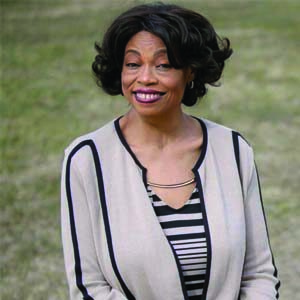
Chair of the Board of Directors
I was introduced to the Witness Stones Project in its earliest days when middle school teacher Dennis Culliton and psychotherapist Douglas Nygren were contemplating an idea to uncover and acknowledge the humanity and contributions of enslaved people who had helped to build their town of Guilford, Connecticut.
Dennis described his work guiding his students at Elisabeth C. Adams Middle School to use documents, such as wills, property records, probate inventories, and census records, to piece together forgotten lives. He was teaching his students to know their own town in ways they had never done before and to read between the lines to imagine the lives of enslaved people. He told me how students worked together to piece together history like a jigsaw, teaching each other their knowledge, writing biographical sketches, and uncovering paths of history. They found my ancestors along one of those paths.
In all my years of schooling, I had never been taught the things these students were learning. I had never been taught about the existence of enslaved people in the North, the true nature of slavery and its economic contributions to our nation’s wealth, the truth that Native Americans were also enslaved, and the fact that thousands of Black people lived in every American colony. I certainly never learned that more than 10,000 Black men had fought in America’s revolution. Or that my fifth-great-grandfather was one of them.
When I learned this new knowledge, it reoriented me. It made me appreciate my true place in the country. America wasn’t an accident that I fell into. She wasn’t my country by default. She was my country because nearly 300 years of my ancestors’ blood, sweat, and tears had earned her for me. My ancestors didn’t inherit America; they shaped and fought for her existence and her freedom at a time when their own was denied.
The Witness Stones Project is a critical necessity for our country. The effort is not critical solely because it restores the humanity that was stolen from the enslaved. It is critical because it can change a student’s empathetic orientation to the hard facts of our country’s past. It is critical because we need a truthful telling of America’s history that acknowledges the contributions of all Americans.
Our history is not without pain. Neither is our present. Nor will our future be unless we own our history and grow from it together. Our real history is our children’s right. It is their legacy. And it must be their truth. And if we do this right, the ability to discuss, understand, acknowledge, and reconcile our collective history will be our children’s power.
Pat Wilson Pheanious, JD, MSW
Co-Chair of the Board of Directors
Witness Stones Project, Inc.


